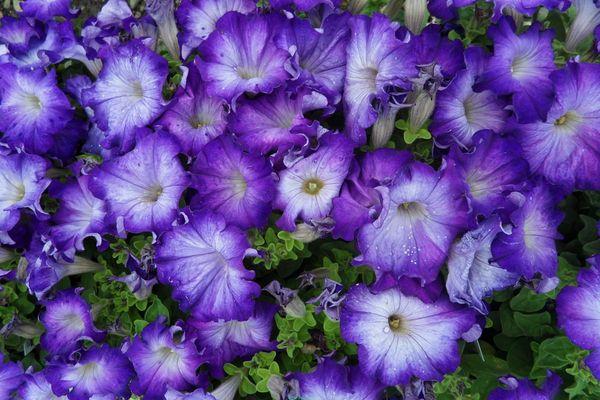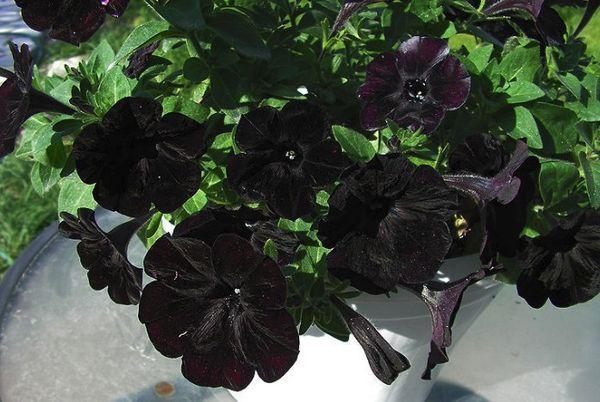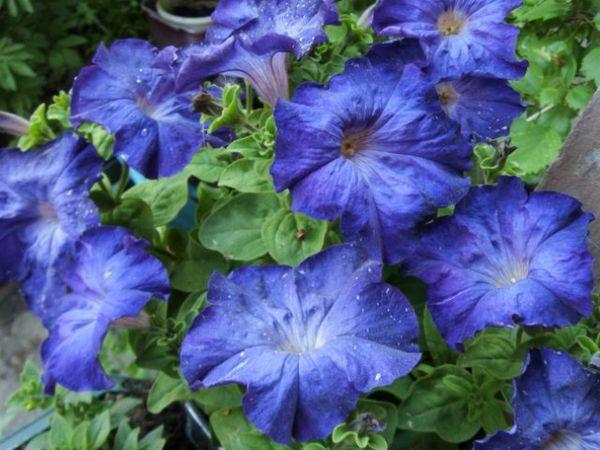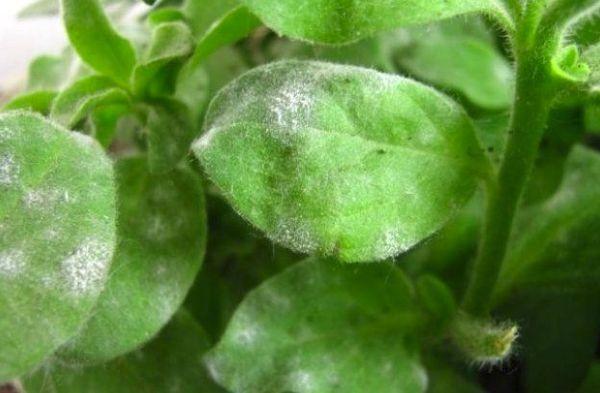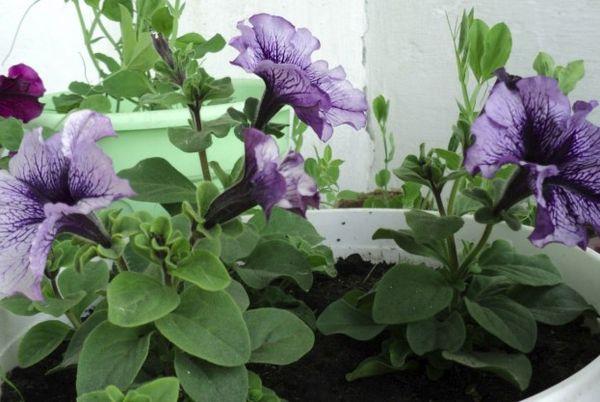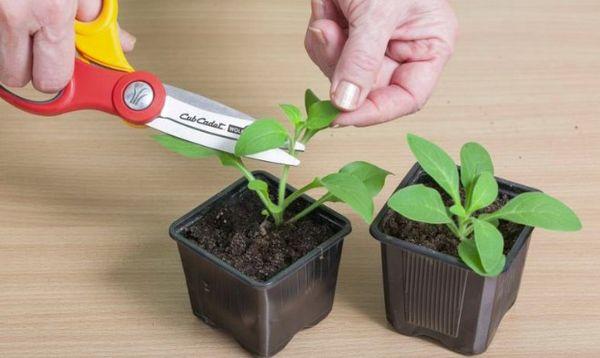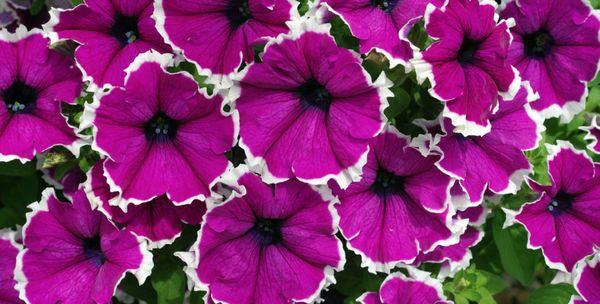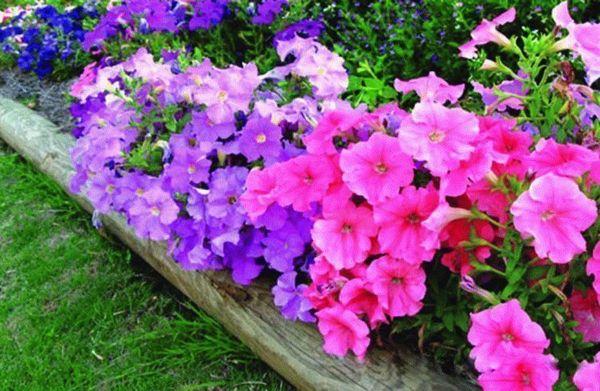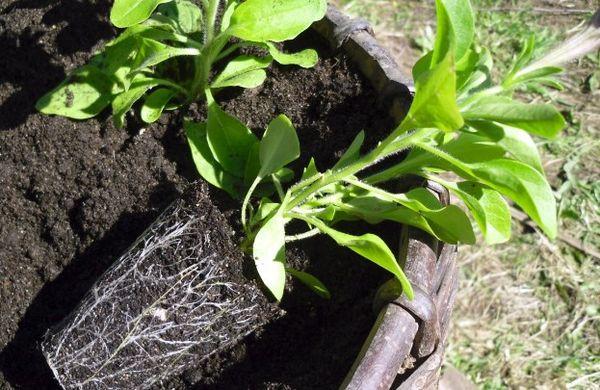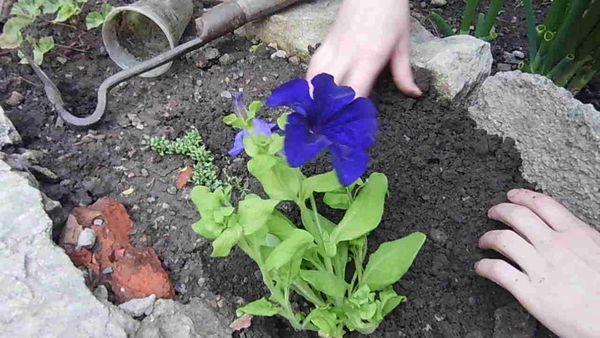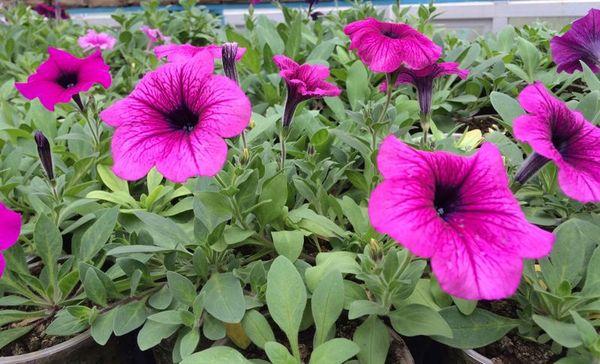Petunia has long won the love of gardeners - now not a single plot can do without these delicate flowers. Many species and varieties of petunias have been bred, and in a variety of colors you can find both simply pleasant shades and unusual multi-colored varieties. Among these species, it is worth highlighting Petunia Sophistica. It is part of the Grandi Flora group, and the color of this series depends on lighting and weather conditions.
- Description and features
- Varieties
- Lime bicolor
- Blackberry
- Lime green
- Blue Morn
- Antique shades
- Twilight
- Advantages and disadvantages
- pros
- Disease resistance
- Almost 100% germination rate
- Rapid growth and development
- Frost resistance
- Minuses
- Noticeable dust on Blackberry flowers
- How to plant seedlings correctly
- Deadlines
- How to plant
- Growth stimulants
- Temperature and light conditions
- Picking
- Top dressing
- Watering
- Hardening
- Planting in open ground
- Selecting a location
- Soil requirements
- Wind protection
- When to plant
- Planting scheme
- Care
- Watering
- Top dressing
- Loosening and weeding
- Removing dried leaves and flowers
- A color scheme
Description and features
Petunia Sophistica was bred by breeders from America. Its unusual appearance and pleasant, strong aroma quickly attracted the attention of gardeners.
Flowers from this series are well suited for almost any location:
- open areas;
- flower beds;
- hanging pots;
- vases;
- decorative frames;
- balcony boxes.
There are several more decorative features that make this look one of the most beautiful:
- forms a neat spherical bush;
- pleasant aroma;
- flowers change color from pale to rich under the influence of the sun, weather, and age of the plant.
Like other petunias, this variety is undemanding and therefore suitable for many areas.
Varieties
There are several varieties in the Petunia Sophistica series, their shades ranging from white to black.
Lime bicolor
From the name itself it is clear that this variety combines several colors. The petals themselves are pink, crimson, sometimes light purple or lilac, but they are mixed with stripes running from the center to the edge. They can be cream, white or lemon shades.
Blackberry
One of the most interesting varieties - the flowers can be not only dark scarlet or purple, but even completely black. In addition, the velvety surface gives them a noble appearance. This option grows very luxuriantly and goes well with other flowers, especially contrasting light shades.
Lime green
A variety with very bright, juicy flowers, which by their very appearance lift your spirits.They combine fresh shades of green-yellow and white, with beige sometimes added. The bushes are lush, covered with large buds.
Blue Morn
This variety, whose name translates as blue morning, looks beautiful in large flowerpots outdoors, as well as in open areas. The bush grows evenly in all directions; when flowering, it is strewn with bright buds with petals in blue and light blue shades, sometimes there are purple and white inclusions.
Antique shades
The bushes of this variety are also shaped like a ball, the branches and leaves are located very densely. The flowers are very large. The petals are painted in different shades of pink or cream, with yellow and greenish spots stretching from the middle.
Twilight
Another two-tone variety that combines all pale and bright shades of pink. In the middle there is a yellowish spot that seems to glow slightly and gives the petunia a festive look.
Advantages and disadvantages
Petunia Sophistica is an unpretentious plant, but there are still pros and cons that need to be taken into account before choosing this species for your site.
pros
Due to their high survival rate, varieties of this group do not pose problems even for novice gardeners.
Disease resistance
Petunias Sophistica are almost resistant to diseases and pests. In addition, even in heavy rain and wind, large flowers do not break or tear. If there is minor damage, the plants quickly recover.
Almost 100% germination rate
This applies not only to growing using seeds, but also to breeding seedlings. In any case, there are quite a lot of bushes.
Rapid growth and development
Among all the ornamental plants with large flowers, petunia is the very first to grow and bloom. Very soon after planting you can already admire the flowering.
Frost resistance
Petunias are not afraid of light frosts, so they can be planted in the northern regions. A short drought will not destroy the plant either.
Minuses
Petunia Sophistica has few disadvantages, and those that exist can be solved by the correct choice of location and regular care.
Lime varieties can quickly fade when exposed to sunlight.
All varieties from the Sophistry series change color under different lighting conditions. But Lime varieties can quickly fade, and then they will no longer be so beautiful. Therefore, it is recommended to plant them in the shade.
Noticeable dust on Blackberry flowers
Due to the color, the dust on the petals is clearly visible. Therefore, as soon as it appears, you need to wipe the flowers with a damp cloth.
How to plant seedlings correctly
Growing Petunia Sophistica is not difficult, and in most cases, you can get lush bushes with beautiful flowers without any problems.
Deadlines
Most often, petunia is planted in January. This is done because it takes about 4-8 weeks for the bush to become mature and produce flowers. With such timing, you can get a flowering plant as early as March. If you want to achieve the appearance of buds in late spring or summer, then simply move the planting date. Typically the deadline is April.
How to plant
Petunia can be planted both in pots and in open ground. In the first case, the seeds are laid on the surface of moist soil, but the soil is not sprinkled on top.
The ideal option would be a light planting mixture, and it should be neutral in terms of acidity.
Afterwards, the pots need to be covered with film or glass to maintain a humid microclimate. From the end of April to the beginning of July you can plant in an open area, but only if the temperature at night no longer drops below +8 degrees.
Growth stimulants
If you notice that petunia is growing too slowly, you can use growth stimulants. They are first used when sprouts are first sprayed.
Temperature and light conditions
Warmth is important for petunia, ideal if you plant it at +17-18 degrees. But this is also possible when the temperature at night stays at +8-10 degrees. Without sufficient light, the sprouts may not hatch at all or will be weak and diseased. In the absence of sunlight, provide them with artificial lighting, especially in winter.
Picking
Picking young shoots is carried out twice:
- As soon as the stem has grown and become stronger, and several leaves have formed on it, you need to carefully cut off the very top. You don’t have to throw away the cut part, but put it in water so that it takes root.
- The second time, picking is carried out when planting in a permanent place in open ground.
Top dressing
Fertilizers before planting must be applied taking into account the type of soil that will be used. To do this, take two soil samples, pour vinegar on one, pour soda on the other, and fill both with water on top. If only a slight hiss is heard, the soil is neutral. The option with soda fizzes more - sour, vinegar - alkaline. Once you have determined this, do the following:
- you need to add lime, sand, peat to the acidic one (you can take special peat tablets);
- in alkaline – also sand and organic matter.
Watering
It is important to maintain adequate moisture while growing seeds, so water the plants regularly. But do not allow water to stagnate. You can also spray them. Open the pots from time to time if you are growing petunias at home and ventilate them.
Hardening
Planting petunia in open ground should be preceded by hardening.To do this, one to two weeks before transplanting, the plant is taken out into fresh air every day. First, keep it there for an hour, then the time gradually increases.
Planting in open ground
Before planting in an open place, it is necessary to take into account all the conditions and characteristics of the plant.
Selecting a location
First of all, you need to choose the right place. It should be a sunny area, but do not allow the plant to be in the sun all day.
Soil requirements
The soil for petunia should be light and loose. It is important to remember about acidity - this crop requires neutral soil, pH 5.8-6.
Wind protection
Choose places with protection from the wind. At the same time, natural barriers will create shade for the plants, which will not allow them to constantly be in direct sunlight.
When to plant
When choosing a time for disembarkation, consider the following points:
- three months must pass from the moment the shoots emerge;
- wait until the sprouts are strong;
- do not allow death from frost, so the time for planting is when the temperature at night is already +8-10 degrees;
- choose a cloudy day or evening, then young plants will not be burned by sunlight.
Planting scheme
Seedlings are planted in open ground when there are 6-8 leaves. Adult plants do not tolerate transplantation well. There should be a distance of 15-30 centimeters between the bushes, it all depends on the size of the bush. The larger it is, the more space will be required. If you plant in a container, you will need at least 5 liters of soil.
Care
You need to care for petunia sophistica in the same way as other plants of this species.
Watering
For these varieties of petunias, balance when watering is important. Do not allow the soil to dry out or become waterlogged. Under no circumstances should water stagnate.
Top dressing
Petunia must be provided with appropriate fertilizers:
- are deposited regularly, once every 7-10 days;
- complex formulations are used;
- Another option is solutions with organic matter.
Without fertilizing it is impossible to achieve lush flowering.
Loosening and weeding
Loosening and removing weeds is also important for proper petunia growth. You need to loosen between the rows of plants. Then they will receive more nutrients and water.
Removing dried leaves and flowers
If you do not pick off the dried parts of the bushes, they will look untidy and lose their decorative qualities. Therefore, periodically go around the plants, clearing them of such leaves and flowers.
A color scheme
To create a beautiful composition in the garden, follow some rules:
- The Blackberry variety looks good with light flowers, creating an interesting contrast;
- Lime green is suitable for compositions with bright petunias or other crops;
- the same goes for Antique Shades.

